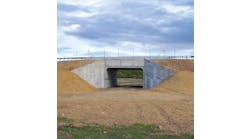The North Carolina House Transportation Committee approved a bill yesterday that would keep the state’s Department of Transportation (NCDOT) from creating new corridor maps and eliminating current maps, an action that would essentially end any new major highway construction plans on the books, if the land has not yet been purchased, and stalling any process of future plans for at least a year.
The bill comes after the North Carolina Supreme Court said the state owes money to property owners whose land and property rights were affected by current Map Act restrictions.
At present, the status of the controversial extension of the N.C. Highway 540 loop is unknown. NCDOT has purchased some of the land necessary to build the toll road but not all of it, making the next steps in the process murky.
Legislators are making four major changes with House Bill 959 in an attempt to begin the mitigation process. The first keeps NCDOT from creating any new maps for future highway plans until July 2017 and eliminates all current maps. During this one-year period, the bill requires NCDOT to study the Map Act process and come up with proposals to fix the issues the Supreme Court found.
“This is only the first step. We have a lot of landowners out there who potentially could pursue claims against the state for what was the law until it was recently declared unconstitutional,” Rep. Chuck McGrady (R-Henderson) said.
The Map Act allows for NCDOT and local governing bodies to create corridor maps, and after the map has been filed, no new building permits or subdivisions would be approved for land in the corridor. This keeps those property owners from building or adding on to their properties and often takes away their ability to sell their properties because it can not be developed. The act does allow for property owners in the map area to request an exception, and compensation is, in theory, also required.
House Bill 959 attempts to clarify what that compensation looks like and where the compensation comes from. The new bill puts those costs on the state’s Strategic Transportation Investments program, under the particular tier – statewide, regional or divisional – that created the corridor map and planned to fund the highway or transportation project.
House Bill 959 will now go back to the state Senate for further approval.



